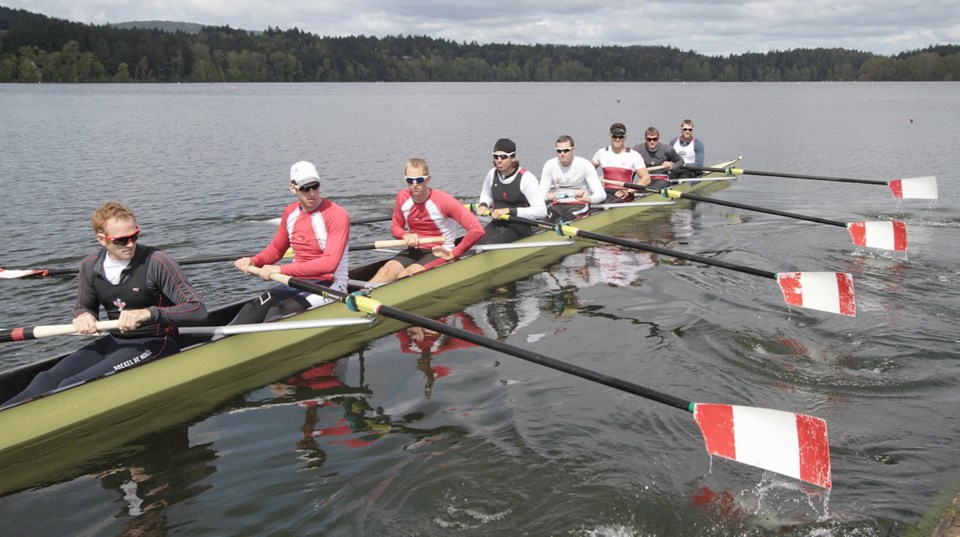The Municipality of North Cowichan opened its arms and Rowing Canada fell into its embrace.
Rowing Canada announced Wednesday that it will leave its training centre on Elk Lake, which has produced 26 Olympic medals since 1984, but will remain on the Island and relocate to Quamichan Lake.
“There are so many benefits and spinoffs from this,” North Cowichan Mayor Al Siebring said.
“We are going to have Olympians shopping in our supermarkets, talking to students in our schools and biking from the lake to the Cowichan Sportsplex [for dryland training]. We can take a lot of ownership and pride in that they will be Canada’s athletes, but also the Cowichan Valley’s athletes, as they prepare for and compete in the 2024 Paris Olympics.”
The move will be made after the 2020 Tokyo Summer Games. It will affect national team rowers and coaches, but the Rowing Canada head office will remain for now at the Pacific Institute for Sport Excellence on the Camosun College Interurban campus
North Cowichan will include space for a boathouse, docks and a buoyed course at Art Mann Park, as well as space for a dryland training facility at the nearby Cowichan Sportsplex, on a lease basis. Capital costs are the responsibility of Rowing Canada, Siebring said.
With multi-use Elk Lake becoming crowded, especially in the summer, a call for proposals from Rowing Canada went out last May for communities wanting to host the national team. Quamichan Lake, which has been used by the national team for training on a part-time basis, beat out four other proposals received among an original total of 10 expressions of interest.
A revamped Greater Victoria bid included using Elk Lake, Shawnigan Lake and Finlayson Arm, with a new boathouse at the latter. A group on the Lower Mainland put forward Buntzen Lake in Anmore. The other two proposals were from Ontario.
“Quamichan Lake offers more exclusivity, which was the most important aspect on the scorecard [used by Rowing Canada’s bid selection committee],” said Dave Calder, executive director of Rowing B.C.
“And the [North Cowichan] community clearly demonstrated it supports the national team coming.”
That was a point stressed by Rowing Canada CEO Terry Dillon, who called North Cowichan a “willing and supportive partner.”
Selection committee chair and former national-team rower Jennifer Walinga described it as an “incredibly iterative and comprehensive process.”
The selection criteria included a high level of community support, access to suitable bodies of water, a dedicated and tailored boathouse facility and dryland facilities in close proximity.
Canada is up against countries that have large bodies of water dedicated exclusively to their national-team rowers. Canadian rowing — which produced only the silver medal in the 2016 Rio Olympics won by the Victoria lightweight double crew of Lindsay Jennerich and Patricia Obee — fears falling further behind because of it.
“Optimal training conditions can’t be overestimated because a wide range of nations are becoming more competitive in rowing and it’s getting harder and harder,” Dillon said.
The fact Quamichan Lake is far less crowded by other users than Elk Lake was a major factor in the decision-making process. Shawnigan Lake will also continue to be used by the national team.
Art Mann Park is to remain a public park. A redesign process will begin with the community and Rowing Canada. The municipality said recreational uses on Quamichan Lake — canoeing, fishing, waterskiing, wakeboarding and the aerodrome — will continue.
“We are going to engage the community and get public input,” said Siebring.
Quamichan Lake is close enough to allow Canadian team rowers to hook into the many national-team services across several sports offered in Greater Victoria by Canadian Sport Institute-Victoria and the PISE.
The move isn’t without a tinge of sadness, however, among a generation of national-team rowers who trained on Elk Lake.
“I’m sad to see the training centre leave Elk Lake. It’s hard for me to see it go from the place that was so crucial to my career and where I spent so much time,” said four-time Olympian Calder, who won a silver medal at the 2008 Beijing Games.
Dillon said he understands: “Big changes come with big emotional changes. I addressed the athletes and some have had a tough time getting their heads around it.”



